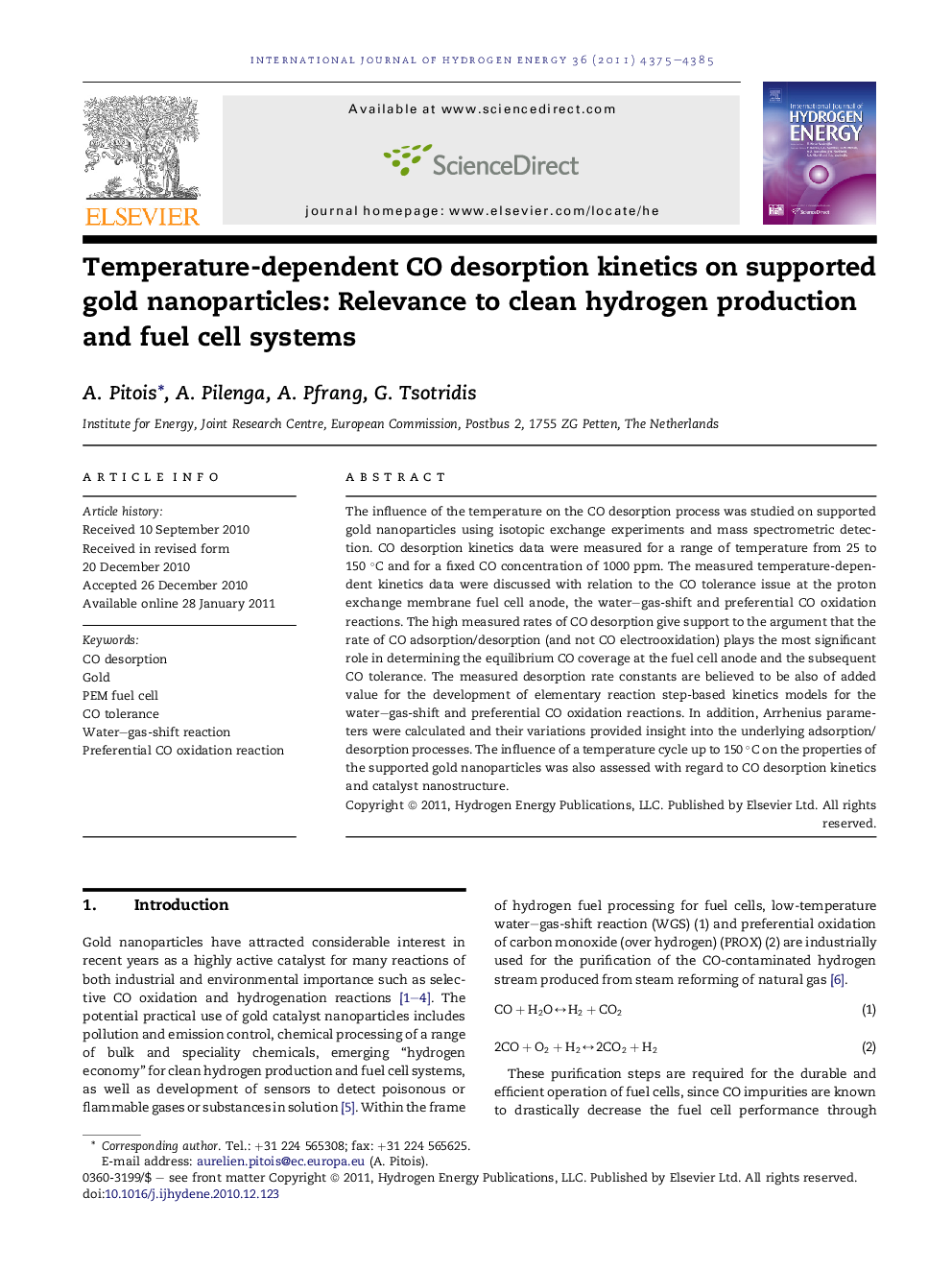| Article ID | Journal | Published Year | Pages | File Type |
|---|---|---|---|---|
| 1276224 | International Journal of Hydrogen Energy | 2011 | 11 Pages |
The influence of the temperature on the CO desorption process was studied on supported gold nanoparticles using isotopic exchange experiments and mass spectrometric detection. CO desorption kinetics data were measured for a range of temperature from 25 to 150 °C and for a fixed CO concentration of 1000 ppm. The measured temperature-dependent kinetics data were discussed with relation to the CO tolerance issue at the proton exchange membrane fuel cell anode, the water–gas-shift and preferential CO oxidation reactions. The high measured rates of CO desorption give support to the argument that the rate of CO adsorption/desorption (and not CO electrooxidation) plays the most significant role in determining the equilibrium CO coverage at the fuel cell anode and the subsequent CO tolerance. The measured desorption rate constants are believed to be also of added value for the development of elementary reaction step-based kinetics models for the water–gas-shift and preferential CO oxidation reactions. In addition, Arrhenius parameters were calculated and their variations provided insight into the underlying adsorption/desorption processes. The influence of a temperature cycle up to 150 °C on the properties of the supported gold nanoparticles was also assessed with regard to CO desorption kinetics and catalyst nanostructure.
